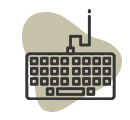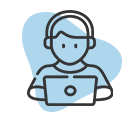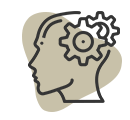neuroscience
Gardner's theory of multiple intelligences (MI) is roughly about the aspects of a person's brain (or perception/expression). When you look at just the theory, well, some people like it, some don't. The point is, it does relate to learning—in an indirect way.
The convenience and utility of e-book readers is undisputed. A few years ago, resolution and readability were an issue; as of 2013, they are amazingly close to physical books. The first time one uses a virtual book is usually an amazing experience. Is there any reason at all to prefer physical books?
In Part 1, we looked at three negative implications for e-book readers as a medium. Here in part 2, we will look at what five authorities on language, informatics, and neuroscience have had to say about the medium.
How does the brain learn? The question might seem too broad, and the answers might seem complex. But if we were to state it in a word, the answer would be Analogy.
Can music in the background actually help you read, work, and comprehend written material better?“Turn that thing off, I’m trying to work here!”
“How on earth can you blare that music while you’re studying?”

Should you listen to music while working?
Well, it's an individual preference. While it is scientifically proven that listening to music enhances your ability to focus and concentrate, some individuals work better in complete silence.
This is a follow-up on a previous post about the application of brain research (whether neuroscience or any other) to instructional design, courseware design, and learning in general. There are three things I'm sure about.
Between July 2010 and now, there have been many opinions and posts about brain research and ID, so I thought I'd take a first-hand look at what research I could lay my mouse on.







